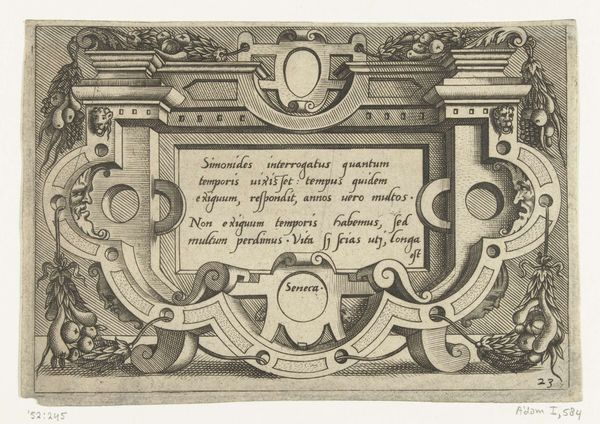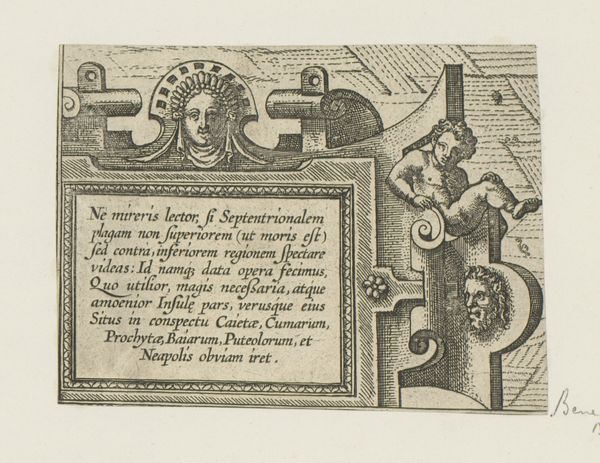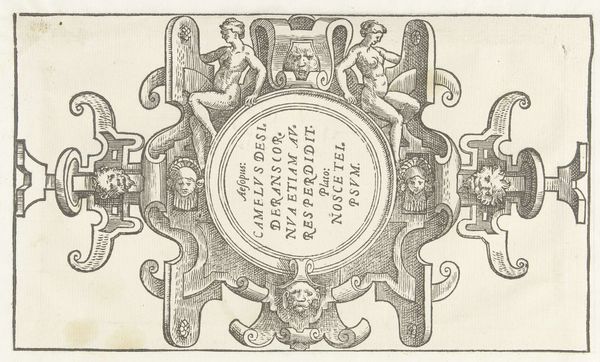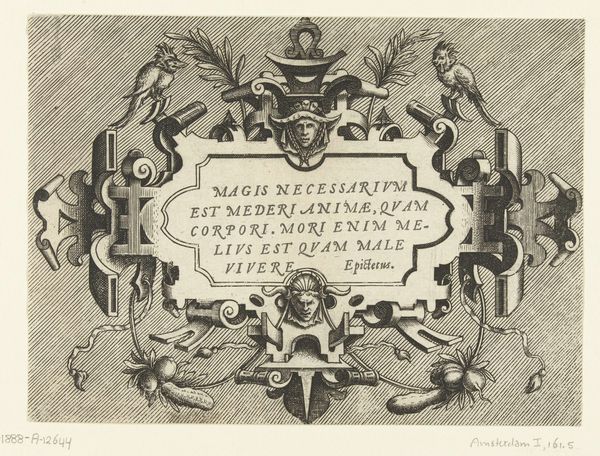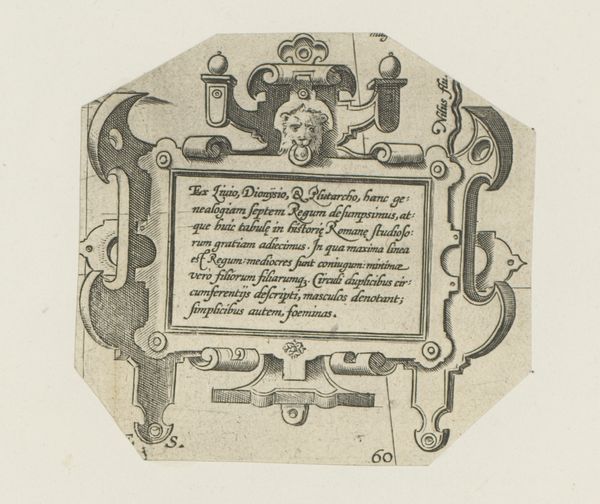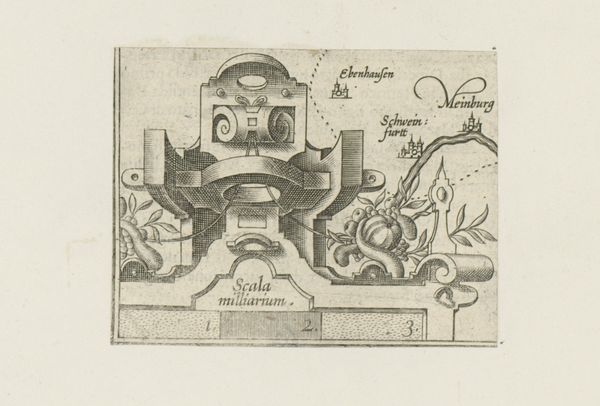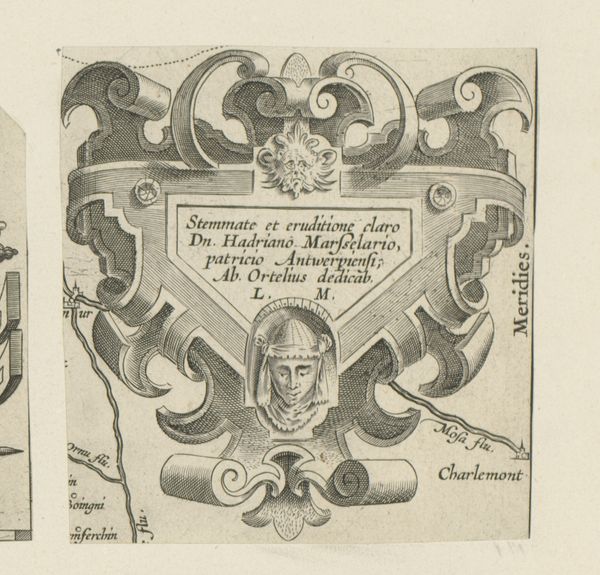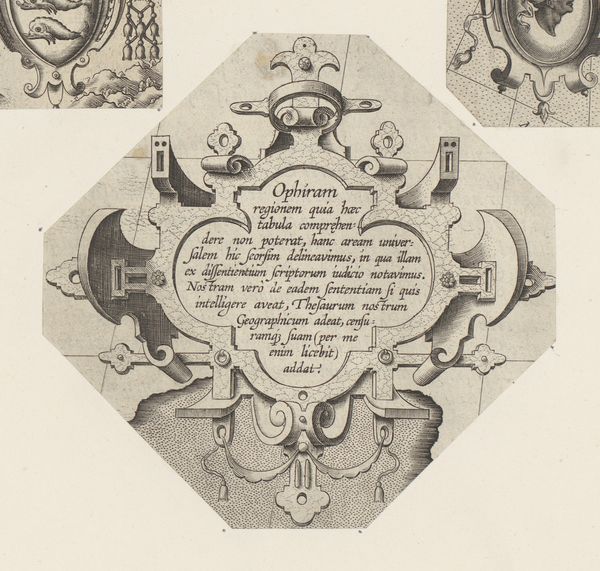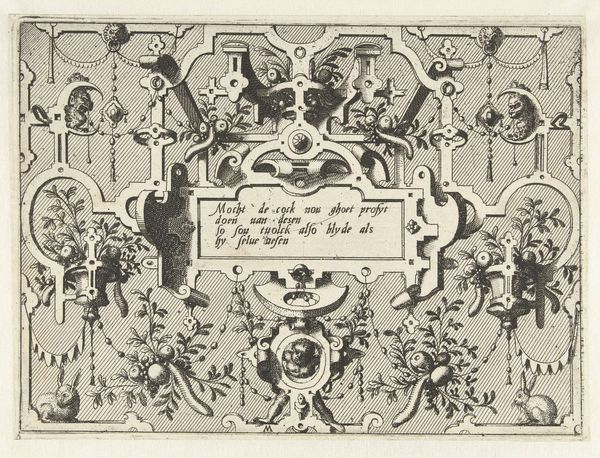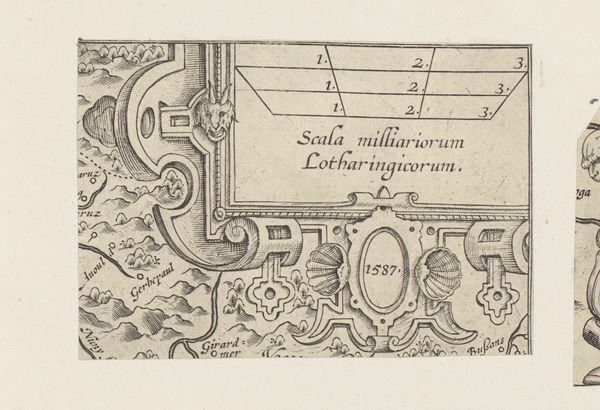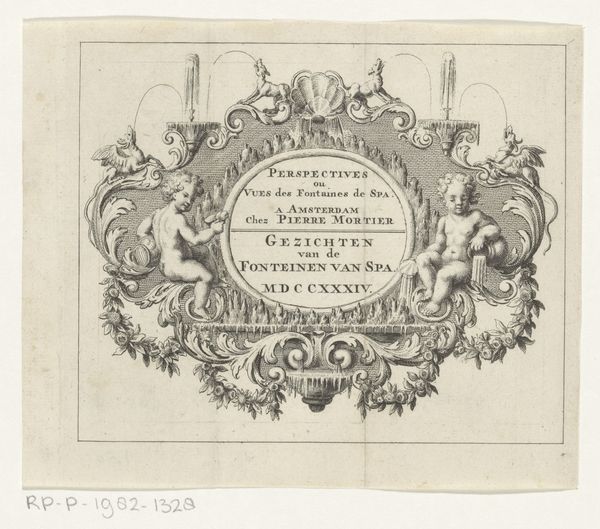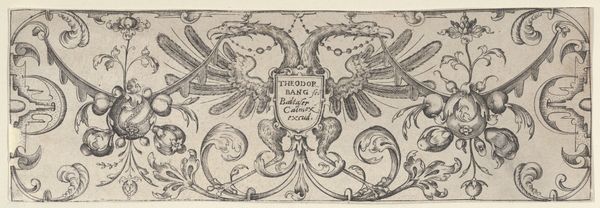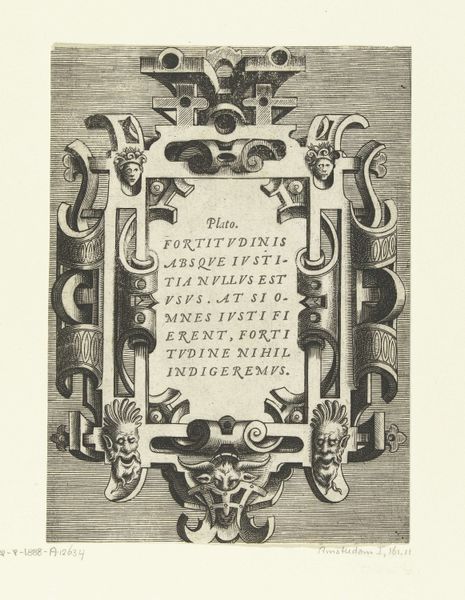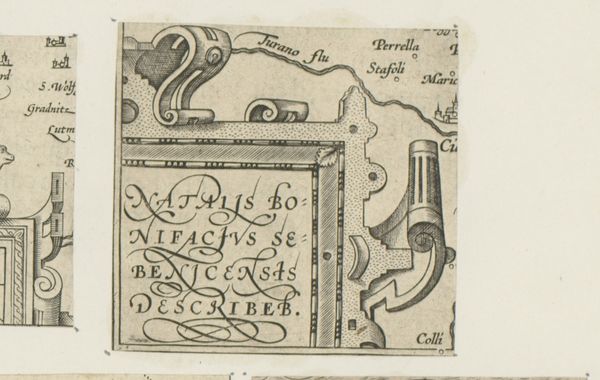
graphic-art, print, engraving
#
graphic-art
# print
#
old engraving style
#
11_renaissance
#
engraving
Dimensions: height 65 mm, width 83 mm
Copyright: Rijks Museum: Open Domain
This is a cartouche made anonymously, using printmaking techniques. The fine, precise lines suggest it was created through engraving, a process involving the careful cutting of lines into a metal plate, which is then inked and printed. Notice the symmetrical, stylized forms, a hallmark of the “rolwerk” or "strapwork" style, very popular in the 16th and 17th centuries. But what's most intriguing is the inscription: "Cum Privilegio." This indicates that the print was produced under official license, a kind of early copyright protection. Printmaking in this era was a skilled trade, demanding meticulous labor. The engraver would have needed to be both technically proficient and artistically adept. Moreover, the granting of a “privilegio” suggests a complex relationship between artistic production, commerce, and state authority. It reminds us that even seemingly decorative prints were enmeshed in the social and economic realities of their time, blurring the lines between craft, art, and industry.
Comments
No comments
Be the first to comment and join the conversation on the ultimate creative platform.
